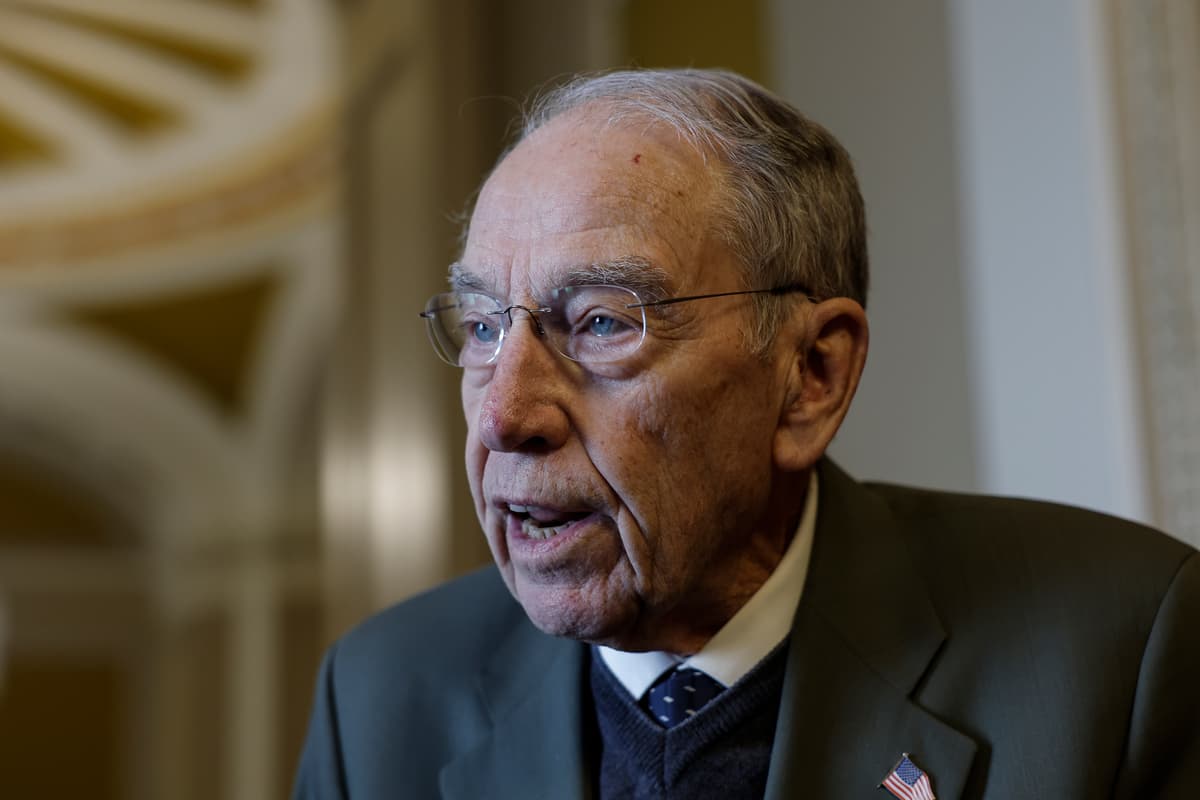Welcome to Washington: Could America Be on the Path to a President Grassley?
If House conservatives revolt against Speaker Johnson and refuse to back him for his position again, the Senate president pro tempore may have to temporarily hold the presidency.

The United States could yet be on a course toward installing a 91-year old as president. That could happen if Speaker Johnson fails to mollify his right flank in the House ahead of the vote to elect a speaker on January 3. For they would need a speaker for Congress to certify the presidential vote.
Please check your email.
A verification code has been sent to
Didn't get a code? Click to resend.
To continue reading, please select:
Enter your email to read for FREE
Get 1 FREE article
Join the Sun for a PENNY A DAY
$0.01/day for 60 days
Cancel anytime
100% ad free experience
Unlimited article and commenting access
Full annual dues ($120) billed after 60 days

